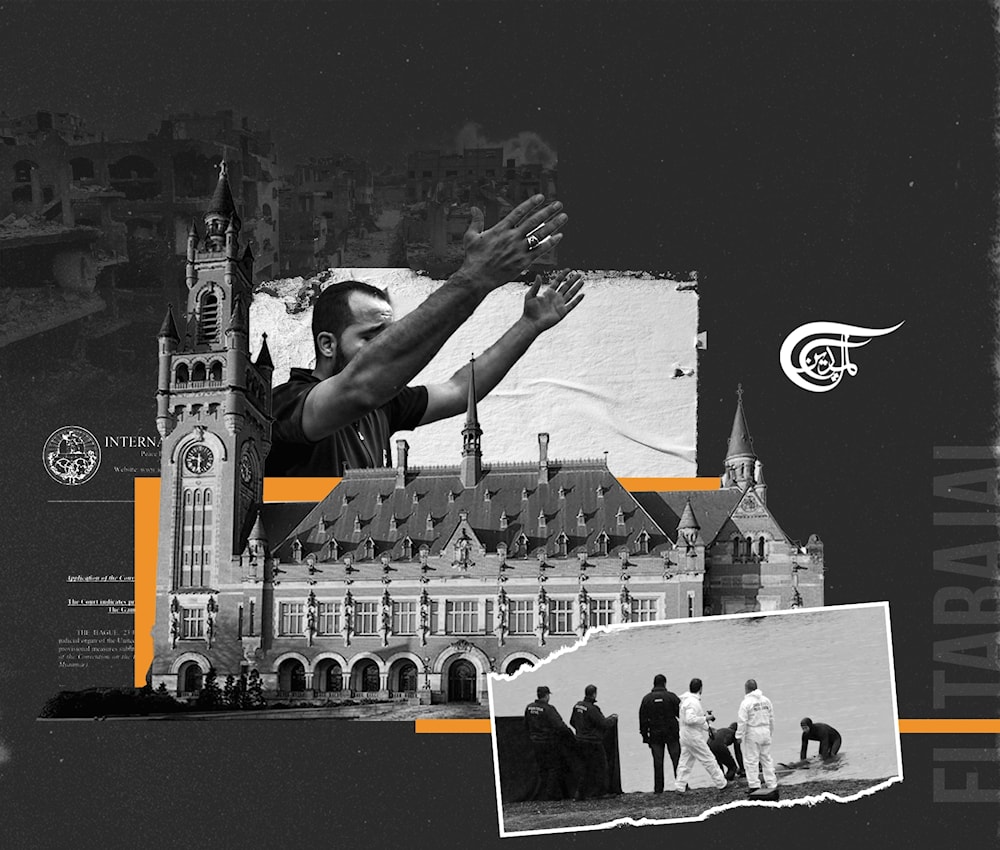505 shots, 15 dead; the tragedy of Tarajal
Who is surprised that the International Criminal Court has sided with the genocidaires against the victims?
-

The ICJ sided with the genocidaires; not a surprise
Who is surprised that the International Criminal Court has sided with the genocidaires against the victims? Justice in Europe is not designed for the poor. Even less for the victims that Western European states consider "third class", such as Palestinians or Africans.
10 years have passed since the Tarajal tragedy, where 15 Africans were killed while trying to swim into Ceuta.
The victims have not obtained justice. The families have not received reparations. How can they receive reparations if the bodies of their children have not even been sent to them for burial?
In Europe, this crime may be perceived as affecting only a small minority; and to some, the act of taking someone's life to "discourage immigration" seems a "proportionate deal”. This perception is often fueled by media misinformation.
In the early hours of the morning of February 6, 2014, some 300 Africans rushed in masses to try to cross the border between Morocco and Ceuta, one of Spain's enclaves on the African continent. They usually do it this way, massively, to overwhelm the Moroccan and Spanish security forces, so that no matter how much violence they use, they won’t be able to contain them all. Others, the most skillful, agile, lucky, or intrepid ones, manage to enter this enclave of Fortress Europe (which is not the Schengen area!). It is very common for the Spanish security forces to apprehend those who have managed to enter and return them to Morocco immediately, in “summary deportation;” something called in Spain “devoluciones en caliente." Morocco will continue to act as an outsourced guardian of the rich Europe.
At approximately 6 am, around 300 individuals emerged from the forests near the border where they had been stranded for months to years. Armed with floats, old inflated car tires, and life jackets, they embarked on the daunting challenge of overcoming one of the last great obstacles on their journey toward a future they have always dreamed of.
Moroccan security forces managed to arrest about 100 and slashed many of the floaters with knives. Of the 200 who overtook the Moroccans, about 90 people managed to get into the water.
They had to swim over the concrete blocks separating the Moroccan and Spanish waters and reach the Tarajal beach in Ceuta (Spain).
The Guardias Civiles used anti-riot materials, such as rubber balls, detonating rounds, and smoke canisters to try to prevent those who swam in or floated as best they could from reaching the land. At first, they fired into the air, then directly at the bodies of those in the sea. As there are recordings of the events, the 505 shots of riot gear fired by the Spanish officers can be clearly counted.
There were hours of anguish, death, fear, and illegal deportations [“devoluciones en caliente”], a common practice which, although contravenes all national and international law, violates the most basic human rights, and has been condemned by the European Court of Human Rights, is carried out with insolence and impunity by the Spanish security forces on a regular basis.
By the end of the morning, 14 bodies were counted, 5 in Spain and 9 in Morocco. Officially 23 people were returned to Morocco immediately “en caliente” and only one person was declared missing. The identified victims were Ibrahim Keita, Armand Debordo, Dauda Dakole, Jeannot Flame, Joseph Blaise, Larios Fotio, Nane Roger Chimi, Ouman Kenzo, Oumar Ben, Samba Baye, Yves Martin and Youssouf. Alongside them in Spain, three other young men, whose bodies have not been identified, are buried. At first, the official version blamed everything on the Moroccan security forces, which is what they are paid for. But the recording of everything done forced them to admit that the Spanish security forces, far from helping those who were in danger of drowning, had fired more than 500 shots at them.
In March, the NGO Caminando Fronteras published a very detailed report of what happened, thanks to the testimonies of victims, relatives, and survivors, but the courts have never taken it into account. The families of the deceased and disappeared, together with several human rights organizations, denounced the events in court with incontrovertible evidence, testimonies, and the recording of what happened. A year later, in 2015, 16 civil guards were indicted for imprudent homicide, only of the bodies found in Spain. The case was provisionally dismissed in October of the same year. Since then, the case has been reopened three times, but the Spanish judicial authorities closed the case each time. Each closure has been appealed, until in 2020 the case was taken to the Supreme Court, which dismissed it definitively in 2022. A parliamentary commission of inquiry was also called for, but it is continually blocked by the majority parties governing Spain.
Based on the concept coined by Cameroonian historian and political scientist Achille Mbembe of Necropolitics, many organizations speak of a Necrofrontier: a border governed by policies that decide who should and should not die, taking away the very humanity of its victims.
Necropolitics is exercised on Spain's border with Morocco with total impunity and its victims are totally unprotected. Helena Maleno, migration researcher and founder of the collective Caminando Fronteras, asserts that neither she nor her team, who have been in direct contact with the families of thousands of people who have died or disappeared at our borders for more than two decades, have "never been aware of any conviction for a death at a border."
Every day, Europe tightens its border "security" measures, spends more and more money to reinforce this necropolitics and guarantees impunity for all violations of fundamental rights that take place at the necro-border. Europeans are turning their backs on this horrendous crime being committed with their public money and in their name.
On February 6, at 07.38 am, when the first shot was fired, various groups in different cities in Spain called for demonstrations to honor the memory of the victims and to say loud and clear that "we do not forget."

 Rosa Moro
Rosa Moro
 6 Min Read
6 Min Read











